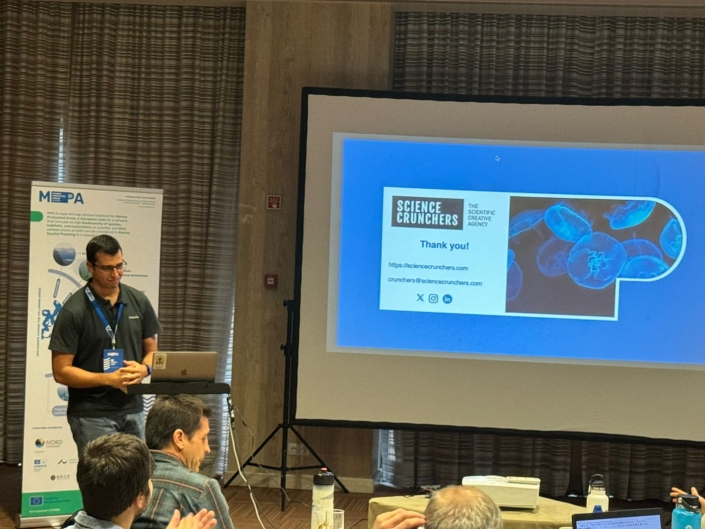MPA Europe Annual Meeting 2024
31/01/2024
Last week, the picturesque fishing town of Olhão, overlooking Ria Formosa National Park in southern Portugal, played host to the annual meeting of the MPA Europe Project team.
Our agenda was packed: sharing the triumphs of our first year and charting the course for the upcoming ones. There was a palpable sense of achievement as all work package leaders presented their progress.
Amongst our key achievements, the marine ecosystem classifications for both near seabed and surface waters stand out. Additionally, the publication of maps and models of biogenic habitats distributions into EMODnet, along with the maps and models of species environmental niches and geographic distributions published into OBIS, mark significant milestones. The establishment of databases for carbon storage in both marine biogenic and non-biogenic sediment habitats highlights our commitment to understanding and mitigating climate change impacts. Last but not least, a paper on European coasts’ wave exposure index underscored the depth of our work.
The highlight of Day 1 was the open symposium, where we delved into national projects. The BiodivAMP project’s guide on best practices for the management and monitoring of Marine Protected Areas, though currently only in Portuguese, was a significant highlight. Equally impressive were the discussions on community-based marine protected areas in the Algarve, systematic conservation planning as part of the Blue Azores Program, and Sciaena’s sustainable initiatives on Culatra Island.
Our field trip to Culatra Island on the last day was an eye-opener. Witnessing the self-sufficient community of 900, subsisting on tourism, fishing, and shellfish farming, was a vivid reminder of the integral role communities play in the success of MPAs. The island, with its diverse birdlife including spoonbills and oystercatchers, was a living testament to the importance of our work.
As we wrapped up there was a sense of collective enthusiasm for the year ahead. The MPA Europe Project is not just about science and data; it’s about people, communities, and the collective effort to safeguard our marine biodiversity.
As we step into 2024, our journey towards a more sustainable ocean continues.




























